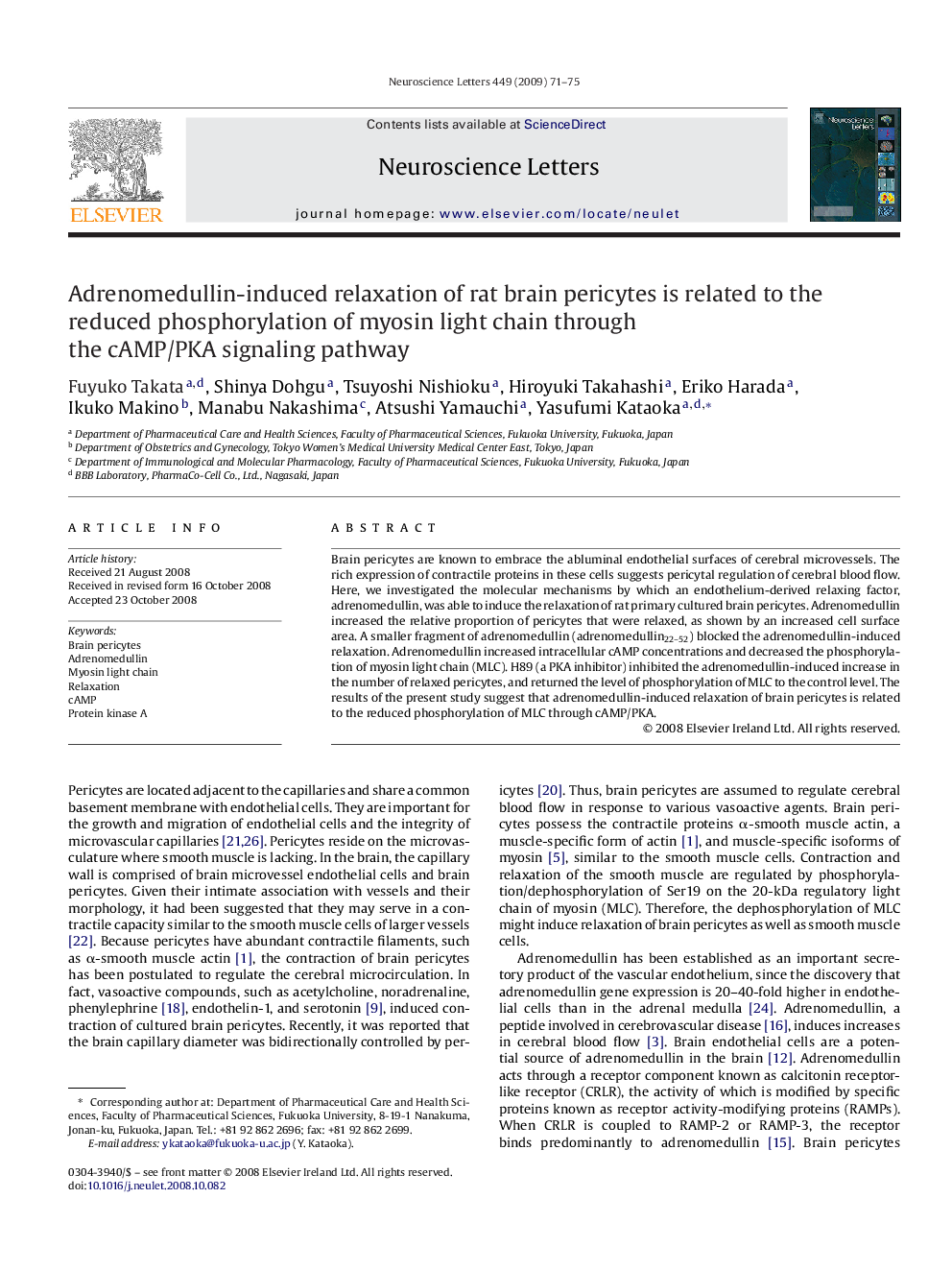| Article ID | Journal | Published Year | Pages | File Type |
|---|---|---|---|---|
| 4347968 | Neuroscience Letters | 2009 | 5 Pages |
Brain pericytes are known to embrace the abluminal endothelial surfaces of cerebral microvessels. The rich expression of contractile proteins in these cells suggests pericytal regulation of cerebral blood flow. Here, we investigated the molecular mechanisms by which an endothelium-derived relaxing factor, adrenomedullin, was able to induce the relaxation of rat primary cultured brain pericytes. Adrenomedullin increased the relative proportion of pericytes that were relaxed, as shown by an increased cell surface area. A smaller fragment of adrenomedullin (adrenomedullin22–52) blocked the adrenomedullin-induced relaxation. Adrenomedullin increased intracellular cAMP concentrations and decreased the phosphorylation of myosin light chain (MLC). H89 (a PKA inhibitor) inhibited the adrenomedullin-induced increase in the number of relaxed pericytes, and returned the level of phosphorylation of MLC to the control level. The results of the present study suggest that adrenomedullin-induced relaxation of brain pericytes is related to the reduced phosphorylation of MLC through cAMP/PKA.
